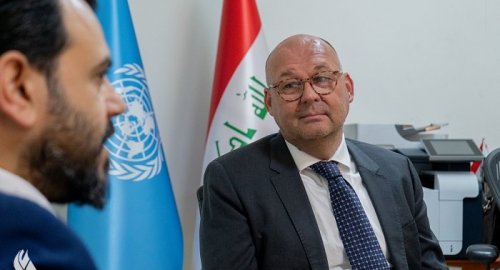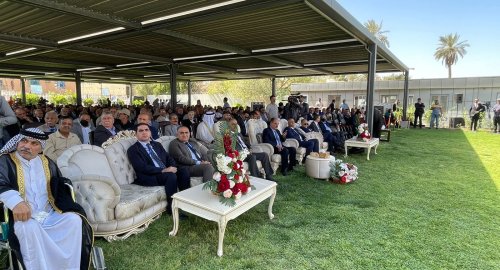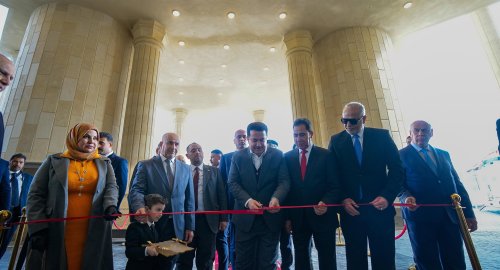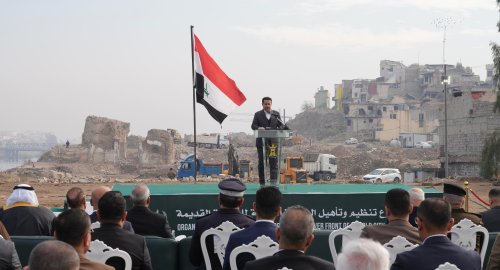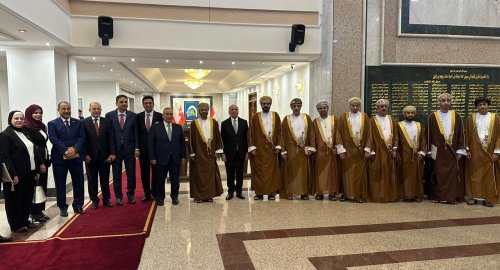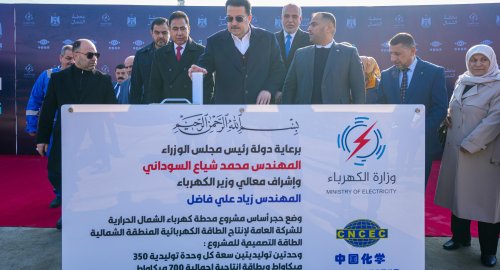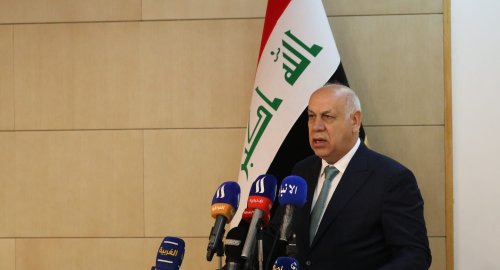
Minister of Culture: Iraq’s Climate Impact Necessitates a State of Alert

- 8-10-2024, 14:24
Baghdad - INA
Minister of Culture, Tourism, and Antiquities Ahmed Fakak Al-Badrani asserted that the repercussions of climate change on Iraq have necessitated a state of heightened alert.
The Ministry of Culture stated in a communiqué received by the Iraqi News Agency (INA) that an expansive conference titled “Cultural Climate: Strategies and Challenges” was convened at the Conference Palace, featuring participation from the Ministry of Environment, the Climate Change Department, the NGOs Directorate, the Iraqi Media Network, the Iraqi Journalists Syndicate, and the General Directorate of Arts.
In his address, Minister Al-Badrani praised the efforts made by governmental institutions, particularly the Conference Palace, to combat the impacts of climate change. He emphasized that reports from specialized organizations indicate that Iraq is among the five countries most affected by climate change, prompting the state to mobilize all its resources to mitigate the resulting damages.
The conference was structured into several sessions, the first of which focused on “The Role of Official Committees in Climate Challenge Strategies,” moderated by Ammar Al-Atta, with presentations from Montasir Al-Hassanawi, Director-General of the Conference Palace, and Youssef Mouaid, Director of the Climate Change Directorate at the Ministry of Environment.
The second session addressed “The Role of Civil Society Organizations in Raising Awareness and Education on Climate Change,” led by Ashraf Al-Dahan, Director-General of NGOs at the General Secretariat of the Council of Ministers.
The third session highlighted “The Role of the Ministry of Culture, Tourism, and Antiquities in Mitigating Climate Change,” presented by Montasir Al-Hassanawi, who also chairs the Climate Change Committee.
The fourth session was dedicated to discussing “The Role of Media in Combating Climate Change,” moderated by journalist Naji Al-Fatlawi, representing the Iraqi Media Network.
The fifth session emphasized “The Role of Journalism in Publicizing and Educating about Climate Change,” featuring a lecture by Mohamed Salam from the Iraqi Journalists Syndicate.
Additionally, the sixth session addressed the National Initiative to Reduce Emissions, discussed by Shaima Mazhar, the initiative’s committee rapporteur.
The conference featured extensive discussions regarding the severe impacts Iraq faces due to the exacerbation of climate change, along with a focus on escalating governmental actions at the highest levels to confront the risks associated with this phenomenon. The six sessions produced numerous recommendations, including:
1. Emphasizing the need for legislative measures concerning climate change.
2. Accelerating the second reading of the Environmental Protection and Improvement Law.
3. Conducting training programs for employees to develop projects and studies on affected areas.
4. Issuing strict guidelines for the rational use of electricity and energy in general.
5. Ensuring the protection of cultural heritage and artifacts from erosion, wind, and climate extremities.
6. Mitigating the phenomenon of agricultural land degradation.
Prime Minister inaugurates new Nineveh Governorate building
- politics
- 04:30
Al-Sudani launches construction of North Thermal Power Plant
- politics
- 12:03
US Central Command: We killed ISIS terrorist leader Abu Yusuf in Syria
- International
- 24/12/20
Liverpool compete with Real Madrid to sign Olympique Lyonnais star
- Security
- 24/12/19
ISC, ADX discuss Strengthening Economic Ties
- Economy
- 24/12/16
Iraq assumes presidency of Arab Investment Company’s Executive Board
- Economy
- 24/12/17

